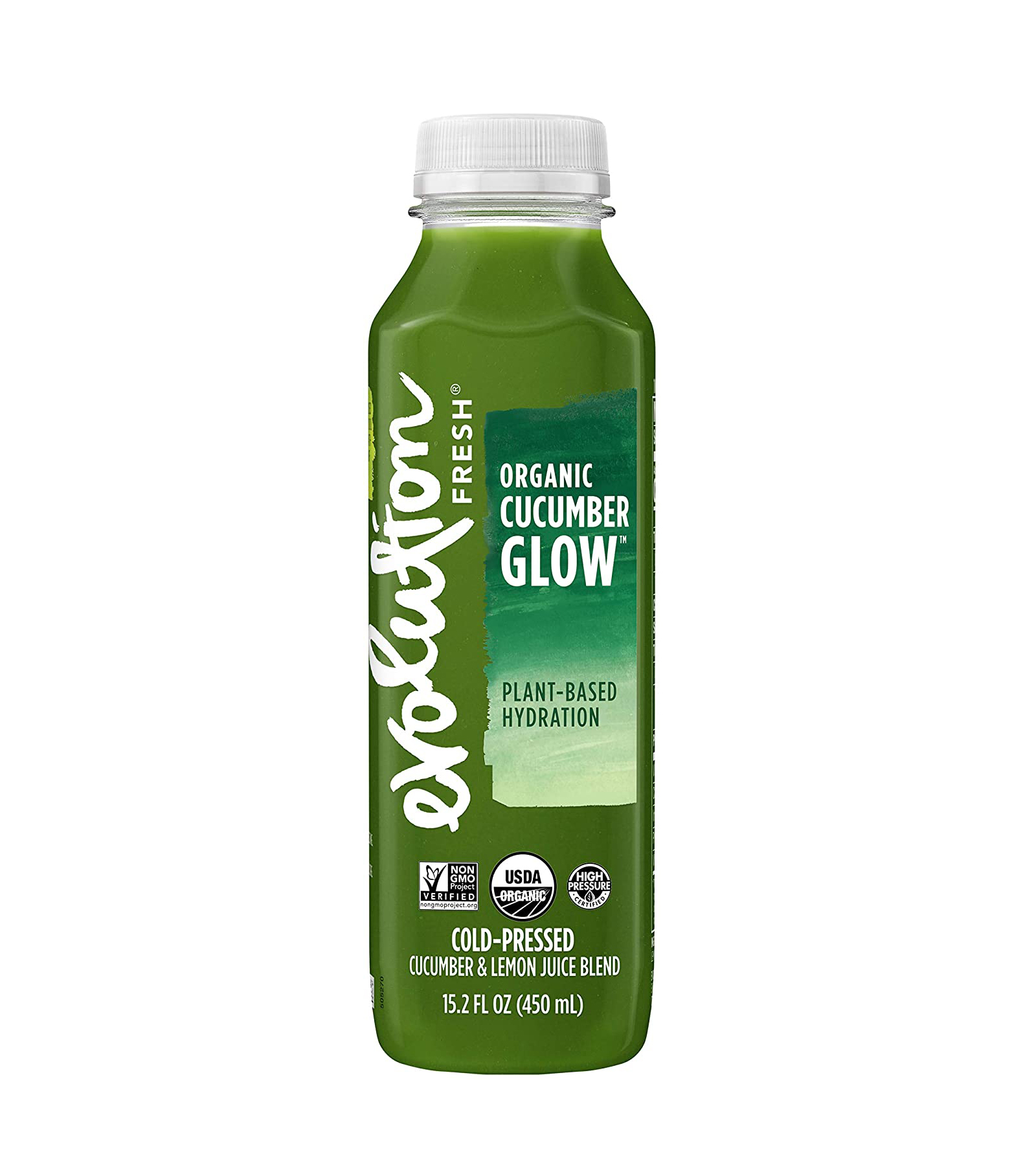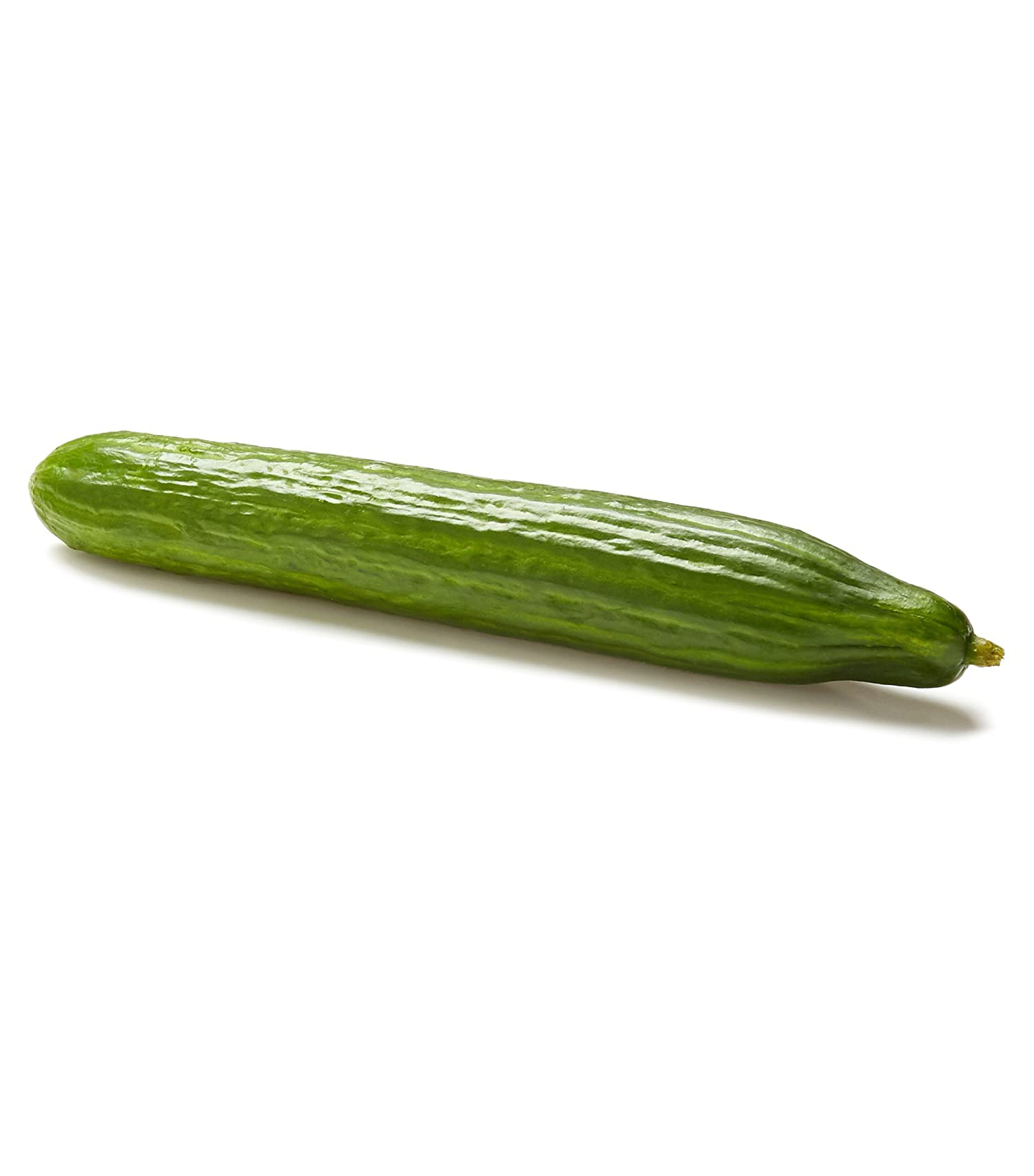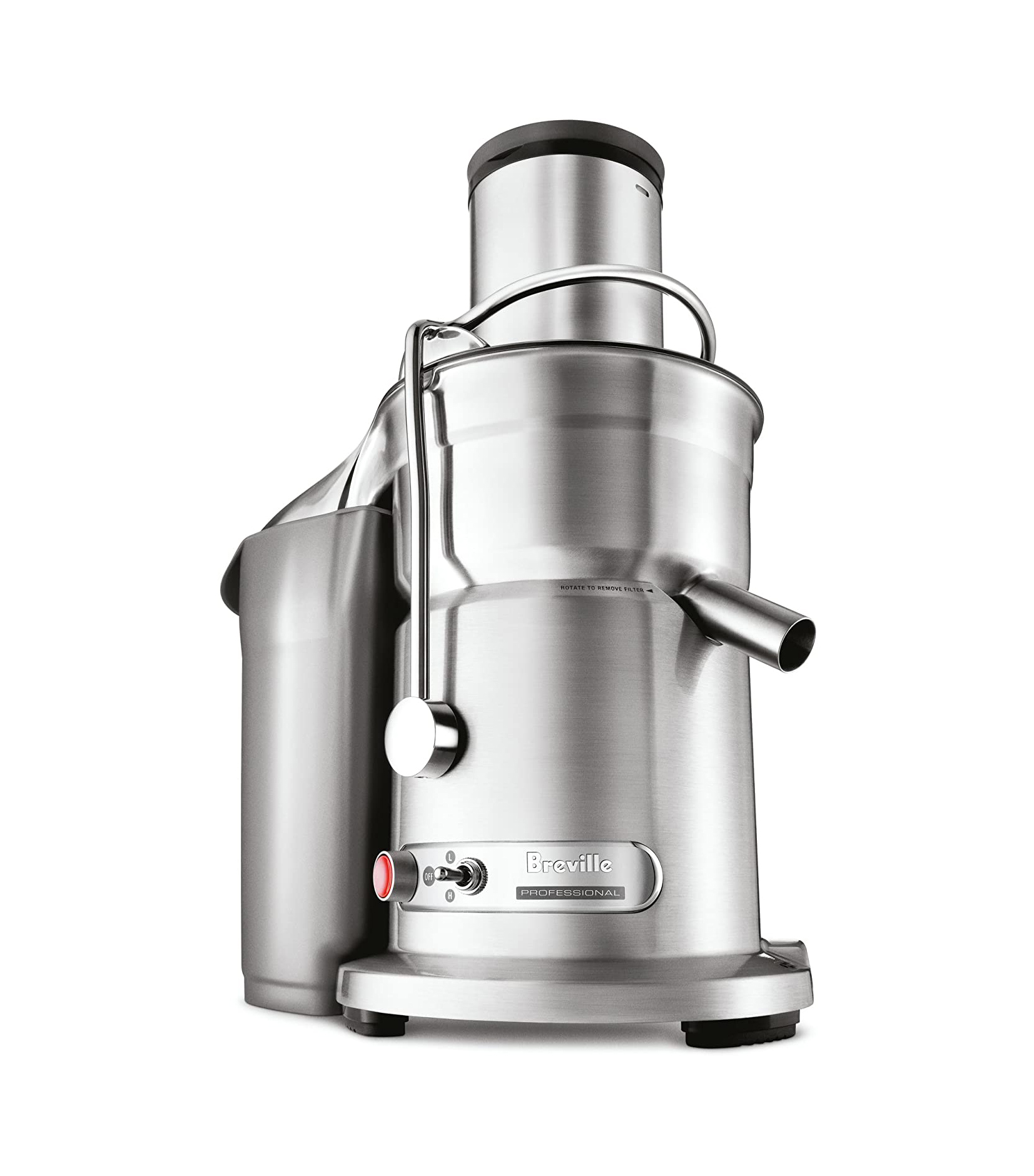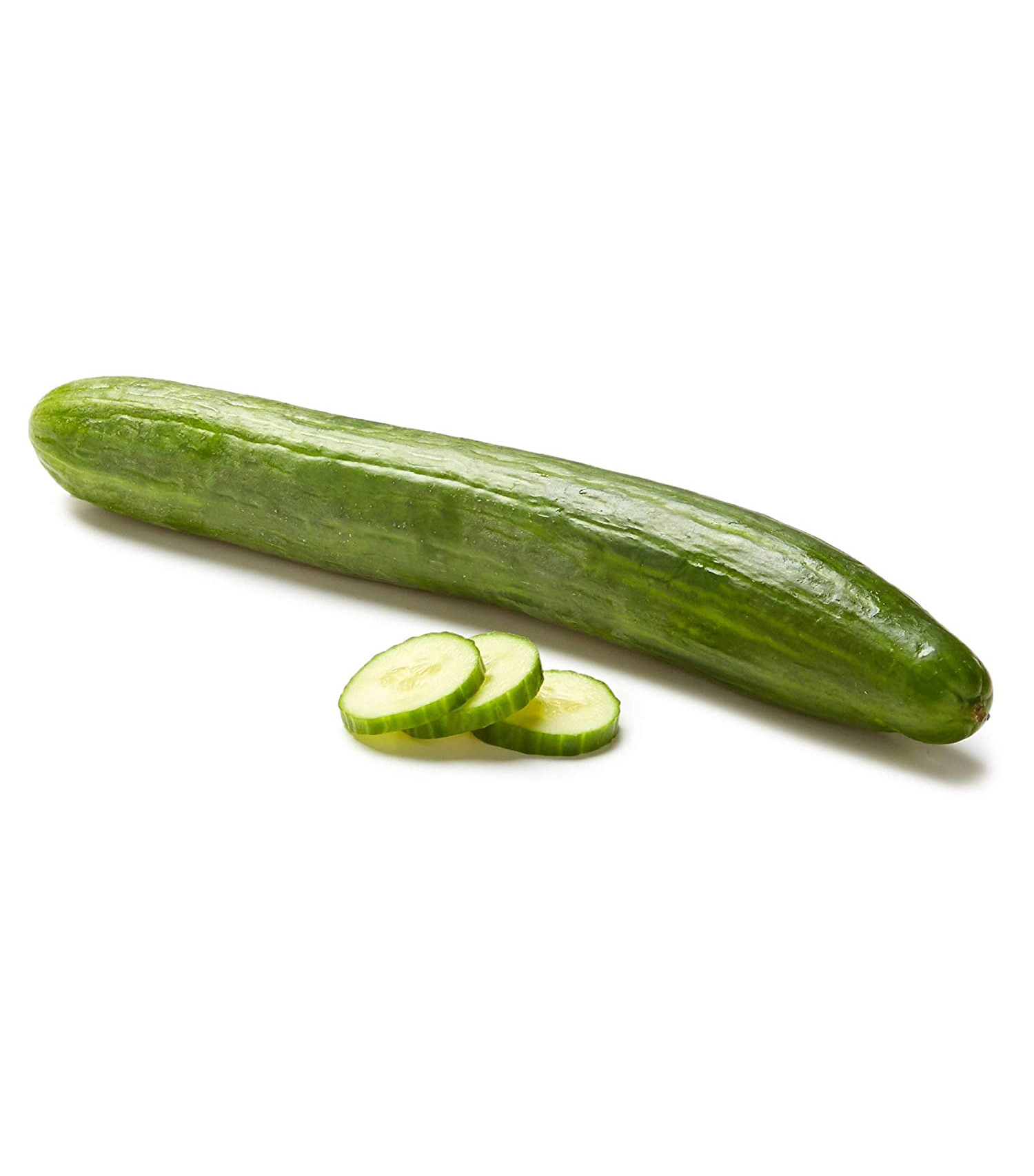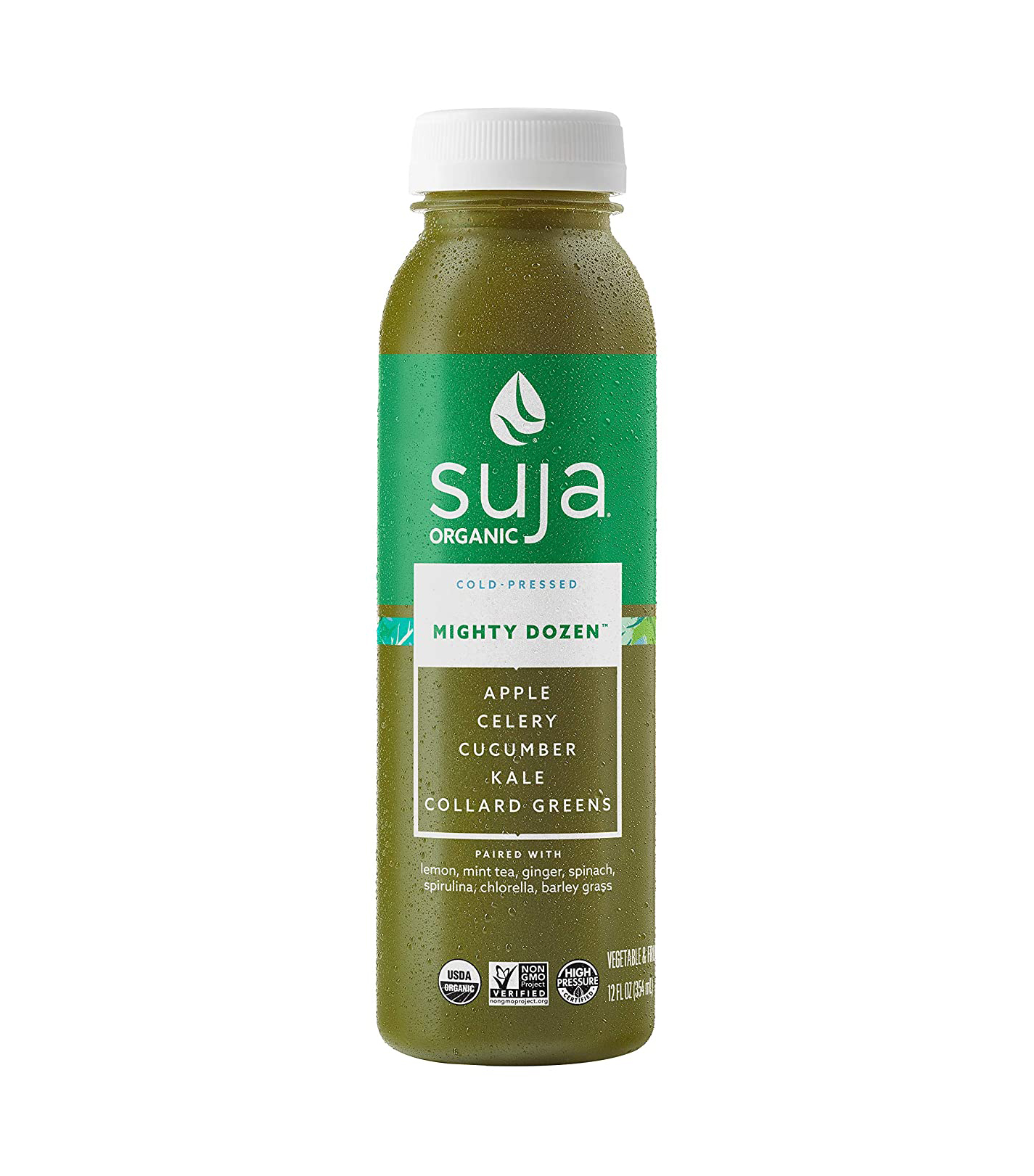Here's the Real Truth Behind This Popular Juice Trend
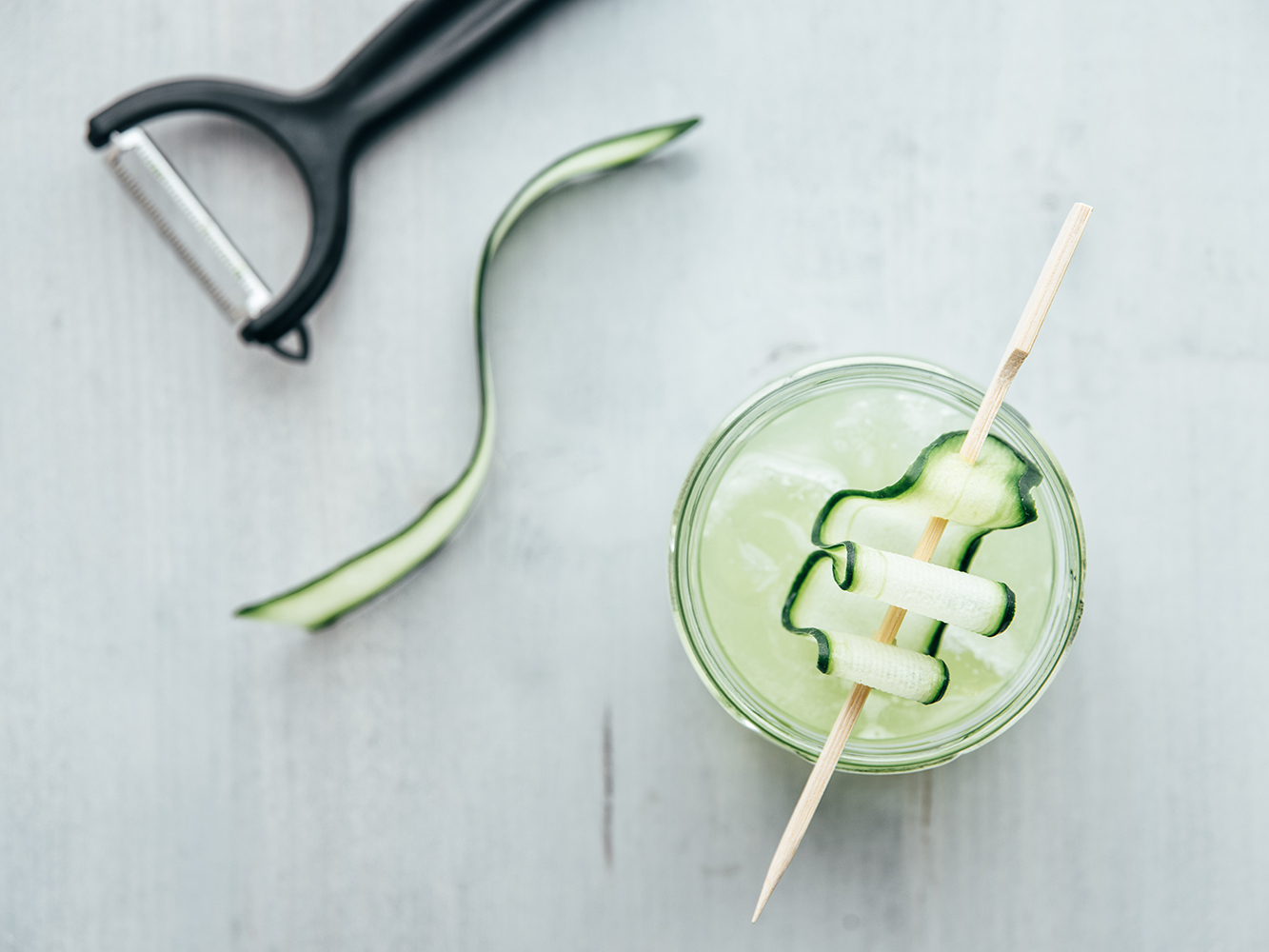
Over the past decade or so, it seems that almost everyone has gotten on the healthy juice train. Maybe you're a celery/beet/combination green juice person and can't start your mornings without it. I don't blame you. The supposed benefits of juicing sound really good. Some believe it helps you absorb vitamins and nutrients faster. Others say it reduces your risk of cancer and boosts your immune system. And people think it can be a weight loss and digestion aid.
But is it all too good to be true, or is it the real thing? We've analyzed the benefits of celery juice before, so now, we're turning our focus onto another trending produce product: cucumber juice. Experts broke it down for us.
Why Are Cucumbers Good for You?
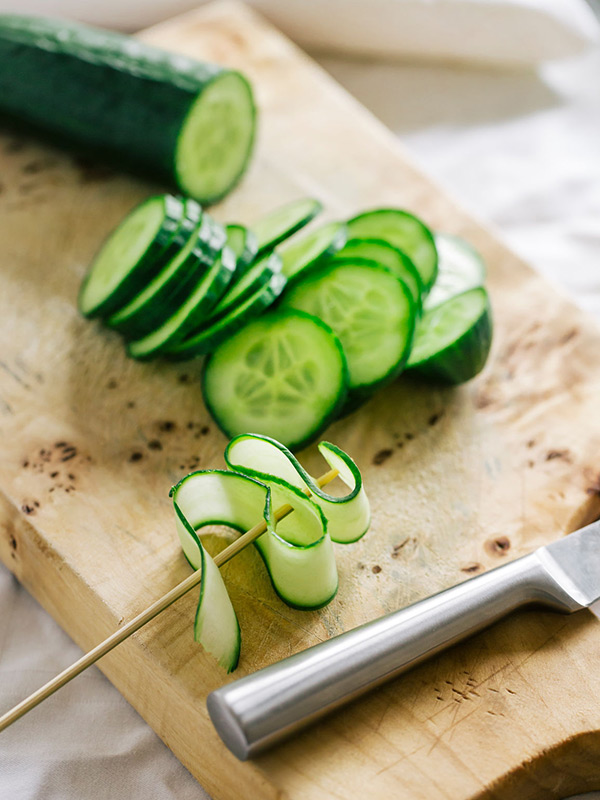
First off, you might be surprised to learn this, but cucumber is technically a fruit. "The edible part of a cucumber plant contains its seeds, which is why it is classified as a fruit," explains Serena Poon, CN, CHC, CHN, chef, nutritionist, Reiki master, and founder of the Culinary Alchemy program. "Throughout the culinary world, cucumbers are generally thought of as vegetables because of their slightly bitter flavor and crispy texture."
They're mainly composed of water and have very few calories—one cup of sliced, raw cucumber is 15 calories. But that doesn't mean they're not packed with nutrients. "Cucumber is also a good source of vitamin K and has decent amounts (4 to 5% of the estimated daily value) of copper and vitamin C," says Tamar Samuels, MS, RDN, NBC-HWC, a registered dietitian, a national board–certified health and wellness coach, and co-founder of Culina Health. "Cucumbers also have quite a few phytochemical plant compounds, which act as antioxidants, including several flavonoids. Finally, cucumbers contain some trace amounts (about 3 to 4% of the daily value) of electrolytes like potassium, phosphorus, and magnesium."
Benefits of Cucumber Juice
It's Super Hydrating
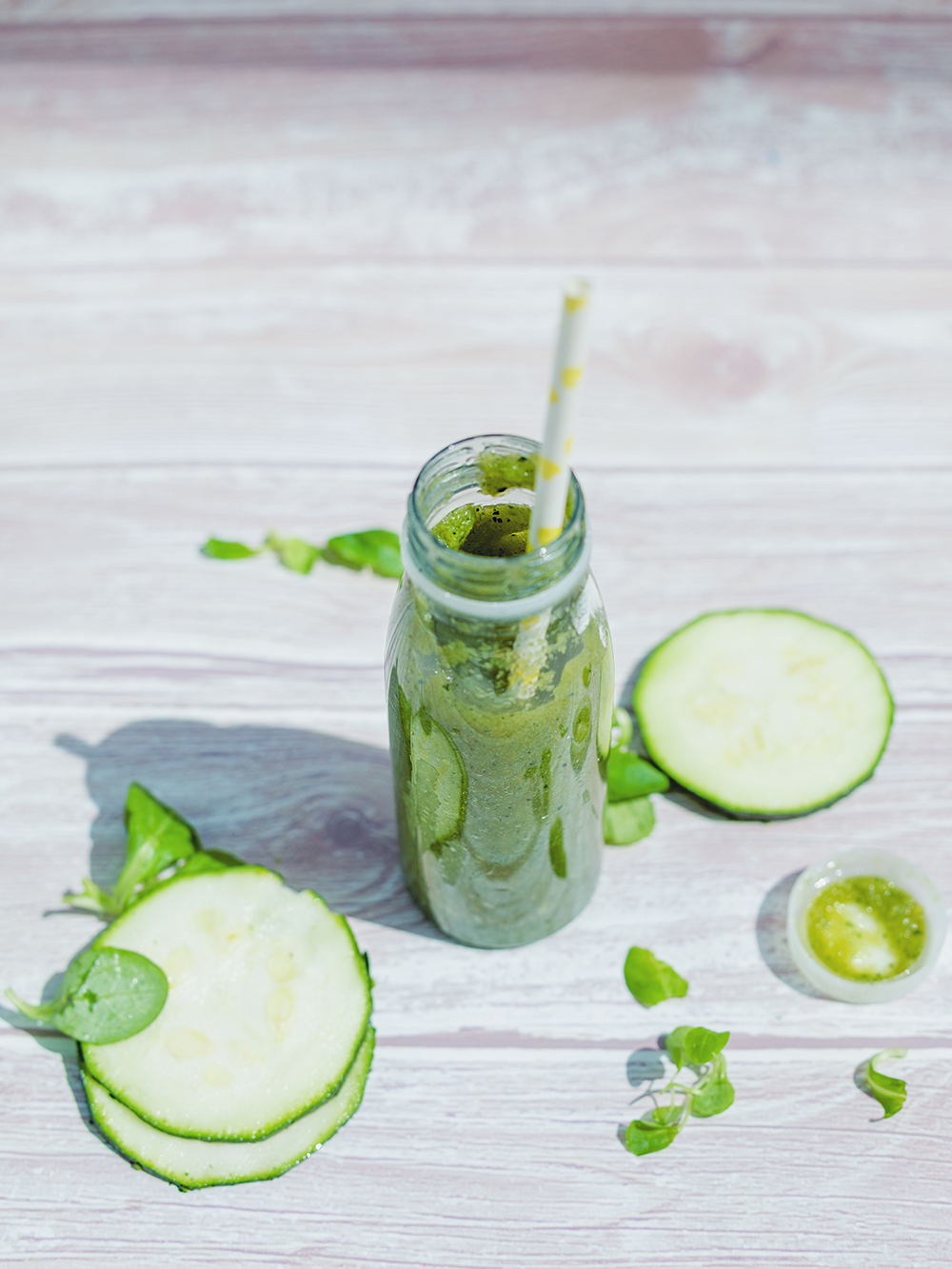
Compared to plain ole water, cucumber juice has so many more added nutrients. "Cucumber juice can greatly improve hydration status, keep up certain vitamin and mineral levels, and provide antioxidants, of which everyone can benefit, but especially people who have higher hydration needs like athletes or people who exercise frequently," explains Vanessa Rissetto, MS, RD, CDN, a registered dietitian nutritionist and co-founder of Culina Health.
It's Anti-Inflammatory

"Chronic inflammation can lead to serious diseases such as heart disease, diabetes, cancer, arthritis, and more," Poon says. "Eating a diet full of anti-inflammatory foods can help keep your body in a state of balance and healthy. Cucumbers and other members of the Cucurbitaceae family, such as squash and melons, have been shown to have anti-inflammatory properties."
It's a Source of Fiber
Samuels says if the cucumber juice is made fresh with all the seeds and skin included, it can be a small source of fiber, which we know can support a healthy digestive system. But there's a catch about fiber that we'll get to later…
It Promotes Healthy Skin

In general, consuming veggies can help your skin look radiant, healthy, and moisturized. "Cucumbers also have a special cooling property that has been shown to support skin health topically, hydrating dry or sunburnt skin from the outside," Poon adds.
It Supports Bone Health

Rissetto says that vitamin K is particularly beneficial for bone health, so cucumber juice may be a good option for people who are looking to prioritize that.
It's Packed With Antioxidants
"Cucumbers contain many antioxidants, such as beta-carotene, vitamin C, and flavonoids, that have antioxidant activity such as apigenin, luteolin, quercetin, and kaempferol," Poon says. "Antioxidants are an important component of your diet, as they protect your cells from damaging free radicals, which can speed the development of disease and the signs of aging."
It Might Have Cancer Prevention Benefits
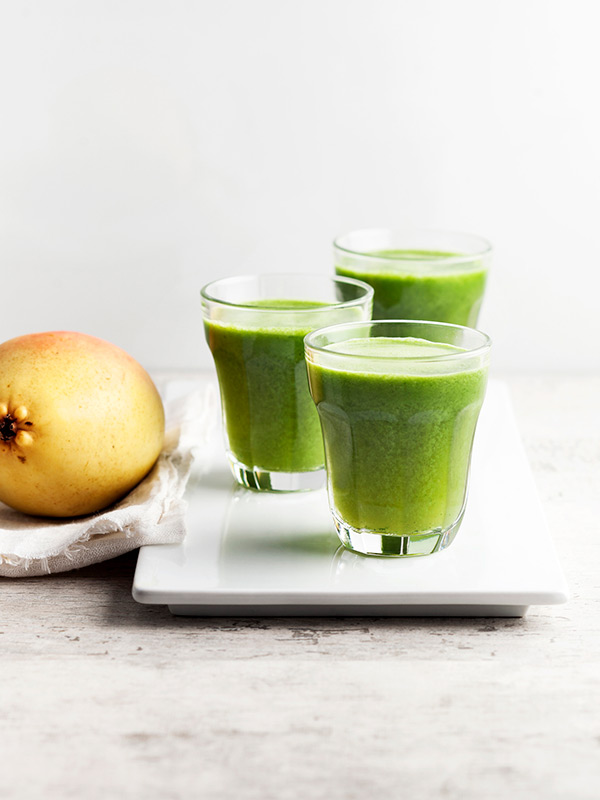
Poon cites studies that have shown that the cucurbitacin compounds found in cucumbers and other Cucurbitaceae may inhibit tumor growth and protect against certain types of cancers.
It's More Palatable Than Regular Drinking Water
If you don't love the taste of drinking water, cucumber juice might be more appealing to you since it's low calorie and contains lots of water itself, Samuels says.
It Lowers Blood Sugar
"The cucurbitacins in cucumbers have been shown to help lower blood sugar," Poon explains. "This effect is particularly interesting for treatment for prediabetes, diabetes, and obesity."
Samuels adds that cucumber juice might be a good replacement for fruit juices (like your daily cup of orange juice) for someone who is concerned about blood sugar imbalances or who wants to lose or maintain a healthy weight.
Cons of Cucumber Juice
You're Missing Out on Fiber
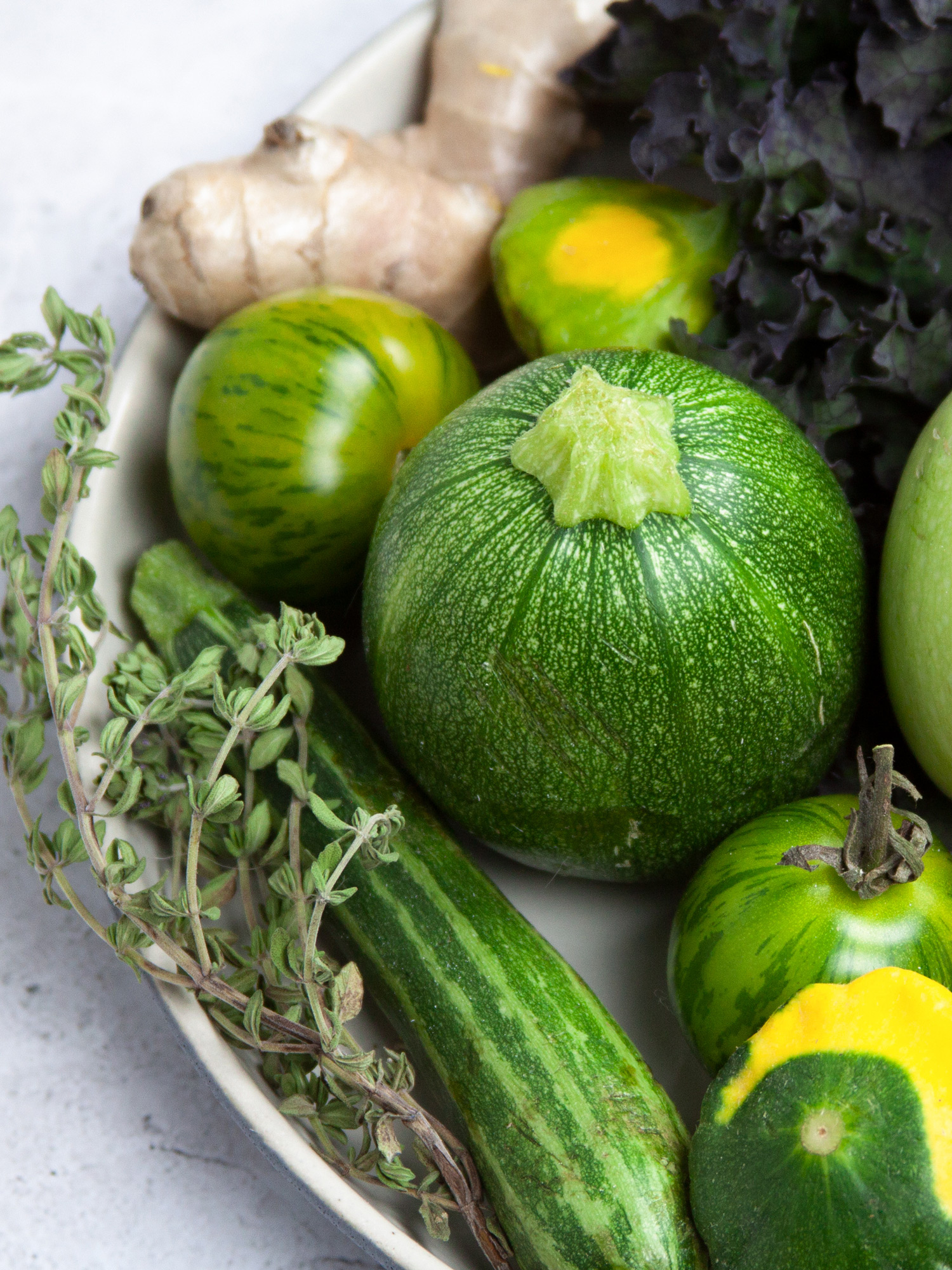
While cucumber juice—with the skin and seeds—can be a source of fiber, if it doesn't contain those two things, you won't be getting insoluble fiber. In general, fruits and vegetables tend to lose their fiber when going through the juicing process.
"The fiber is one of the most important elements of the fruit and vegetables because it feeds healthy gut bacteria, ensuring you have a robust microbiome!" Samuels says. "Fiber also helps keep you full, as does chewing in general. So consuming cucumbers in their juiced form generally won't provide much satiety. Juicing generally produces quite a bit of waste as well. As I mentioned, you are discarding the seeds and skins, and it takes quite a few cucumbers to make one serving of cucumber juice."
Don't Drink Too Much of It
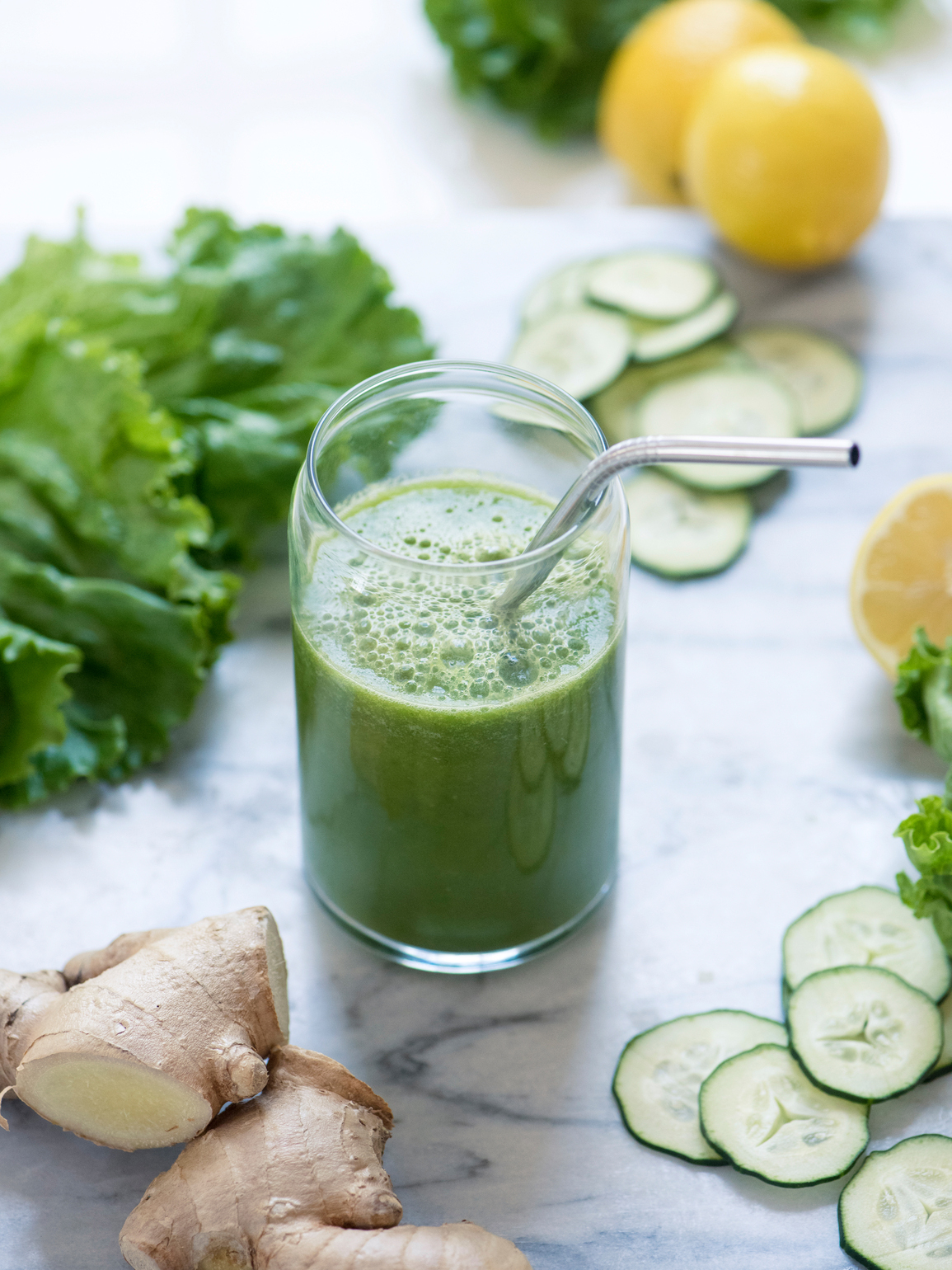
"Cucurbitacins are actually toxic, so I wouldn't recommend drinking cucumber juice in large volumes," Poon says. "Further, high amounts of vitamin K can affect blood clotting, especially if you are on blood-thinning medication. High amounts of potassium can also be toxic. I would caution against drinking several glasses of cucumber juice a day in an attempt to find the 'key to true health,' but in moderation, cucumber juice is probably okay."
Be Careful If You Have Certain Conditions
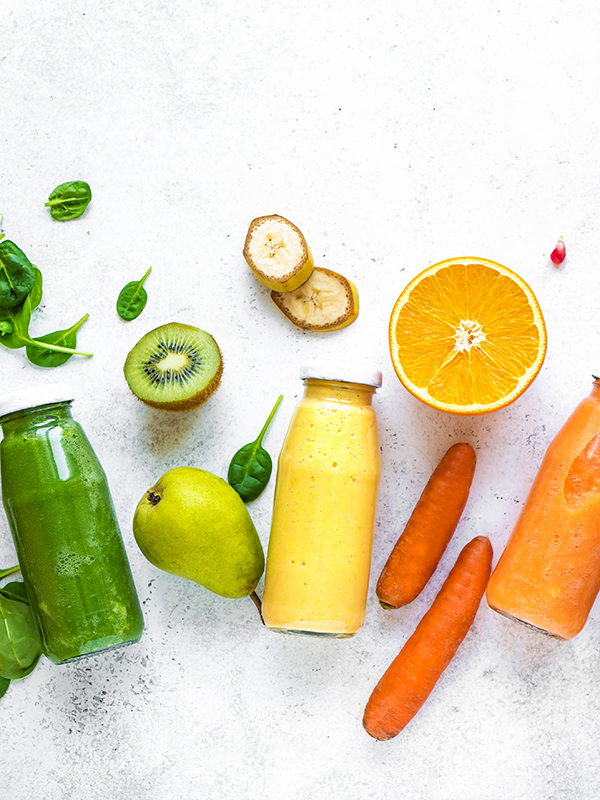
Poon says that if you have cancer or diabetes, you might want to talk to your doctor or healthcare practitioner about incorporating more cucumbers and other vegetables into your diet. If you are on blood-thinning medication and are drinking a lot of cucumber juice, it could be a problem, so check with your doctor about that, too.
Other Tips
If you do decide to hop on the cucumber juice train or if you're already on it, here are a few other things to keep in mind:
Choose your cucumbers wisely. There are a lot of different types of cucumbers out there, but some make better juices than others. Rissetto says that English cucumbers are less bitter and don't have seeds, so they might be preferable. "I recommend choosing organic cucumbers when making them for juicing because juice is concentrated (we need several cucumbers to make cucumber juice), and therefore, we are increasing any pesticide exposure/intake," she adds.
Mix it up. You can also incorporate other ingredients into your juice for more health benefits and different delicious flavors. "There are many delicious combinations that can be made along with cucumber juice, such as adding in mint, lemon, and a green leafy vegetable like kale or spinach," Rissetto says. "If you are adding in another fruit like pineapple or apple, keep in mind that you will be drinking more calories and sugar without having the additional benefits of the fiber from the skins of these fruits. Even though they are natural sugars, sugars from fruit can still spike your blood sugar."
Listen to your body. Poon repeats that it's important to chat with your doctor about your specific dietary needs. She says it's her personal philosophy to really pay attention to your body: "After you drink a glass of cucumber juice, notice how you feel—do you feel energized and happy? Great! But if you feel sluggish or have digestive issues, then maybe cucumber juice isn't for you."
Next up: 35 Fruits and Veggies to Solve Your Skin, Digestion, and Inflammation Problems
This article is provided for informational purposes only and is not intended to be used in the place of advice of your physician or other medical professionals. You should always consult with your doctor or healthcare provider first with any health-related questions.
Sarah is lifestyle writer and editor with over 10 years of experience covering health and wellness, interior design, food, beauty, and tech. Born and raised in Los Angeles, she attended New York University and lived in New York for 12 years before returning to L.A. in 2019. In addition to her work at Who What Wear, she held editor roles at Apartment Therapy, Real Simple, House Beautiful, Elle Decor, and The Bump (sister site of The Knot). She has a passion for health and wellness, but she especially loves writing about mental health. Her self-care routine consists of five things: a good workout, “me” time on the regular, an intriguing book/podcast/playlist to unwind after a long day, naps, and decorating her home.
